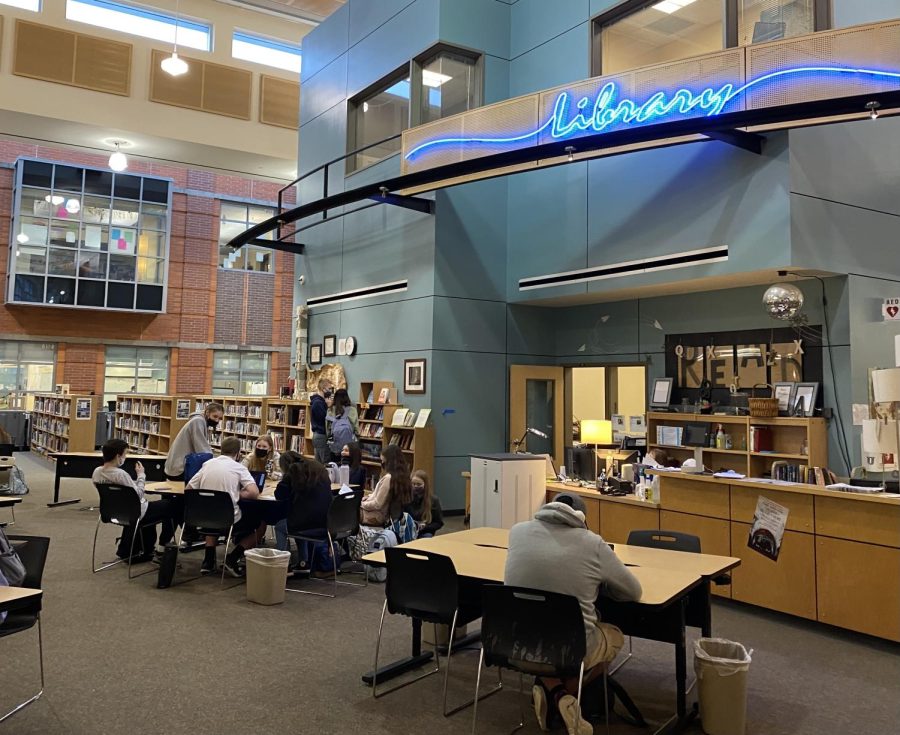Banning books is raising a generation without an accurate sense of the world
Students sit in the school library before class. The library is a great place for students to come study, learn, and of course, read.
Censorship is defined as “the suppression or prohibition of any parts of books, films, news, etc. that are considered obscene, politically unacceptable, or a threat to security.” It is a controversial topic in today’s society– in a diverse world, a wide range of opinions and values is also present. Books are widely regarded as a way to bring people together, but many books are considered by some people to be inappropriate for school.
“Banning books” is the act of barring a book from being taught in schools. People may challenge books with topics that they feel kids should not be exposed to, but the issues lie in what these topics are. Many books are banned because they deal with racism, sexism, and homophobia, but not in ways that are detrimental to kids. Rather, having a wider understanding of these topics helps people, especially kids, better understand and handle them. It is the opinion of many people that this censorship of important topics in children’s lives does not protect them, but instead is only inadequately preparing them for what the world is like. Especially for children who do not grow up experiencing some of these things, reading about them is a way for children to understand these harsh realities, and understanding something, or beginning to, from a young age is the first step toward change.
But banning books is not an issue for just young kids. One can never stop learning about the world, and high school students struggle with these ideas of censorship too, in a much more real way than young children. High schoolers have a better grasp on both the concept of censorship and the ideas being banned. WVHS student Macy Moore said, “For me, I definitely think that there needs to be less censorship in schools; I think all it does is keep people in the dark about issues. People use books as a way to connect with the world, so how can we do that if so many things are off-limits?” Moore has been heavily involved in the reading community all throughout her life– in elementary and middle school she participated in Oregon Battle of the Books, and she is currently a co-president of the WVHS book club. “I think it also makes a less empathetic population,” she added as she discussed how, in her opinion, kids can better understand other people through the lens of a book.
It is true that banned topics are not easy to deal with, but keeping them from students will not help the situation. Our society’s drive to shelter children from the reality of the world will only lead to them growing into maladjusted adults. Especially considering the fact that many books are challenged because of people’s personal prejudices against the topics in them, this needs to stop. Many of the bans are intended to separate these books from others due to people’s need to deny that diversity exists, both in literature and in life. And restricting the books that are offered to students, of all ages, only restricts their capacity to learn about and empathize with the world around them.











